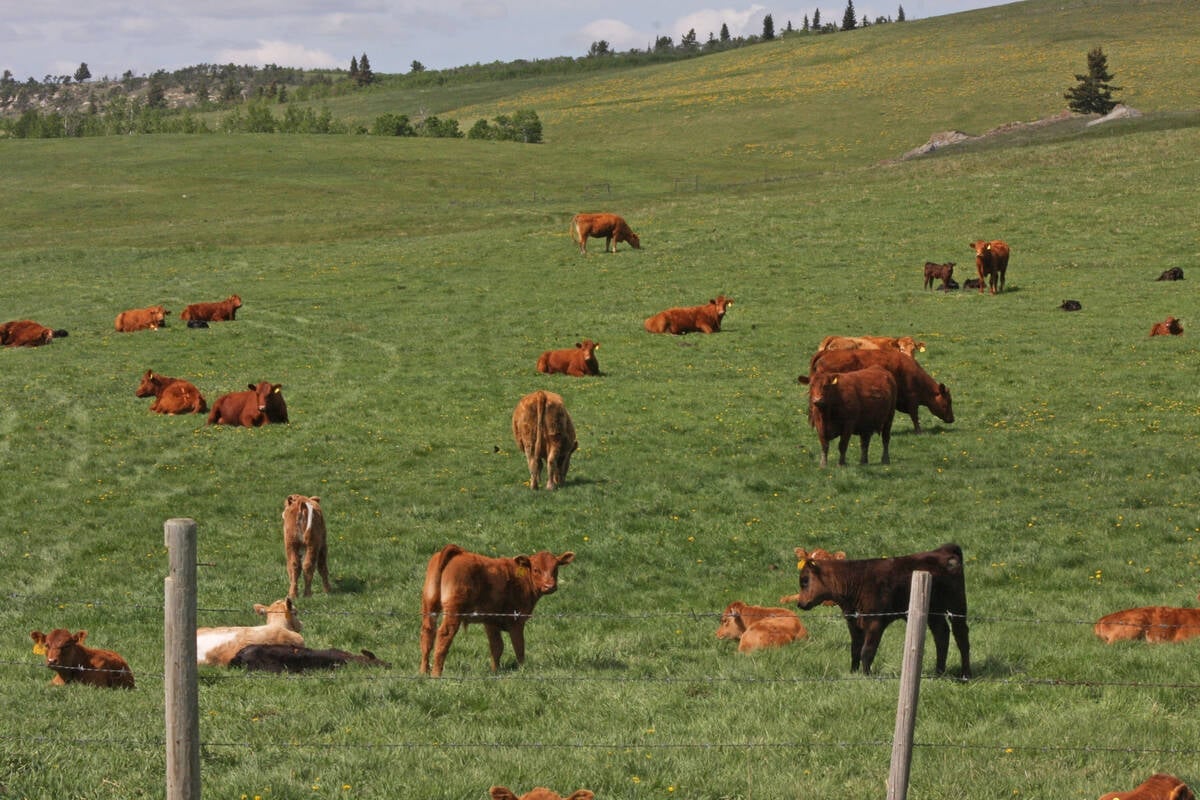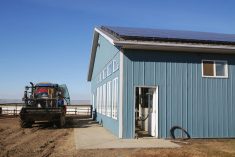The federal government recently announced updates to the fuel rebates that farmers have been receiving since 2019-20. The following provides a summary and some clarity on these updates and how they could affect farmers, taxes and AgriStability.
The changes are a result of the federal government removing the federal fuel charge effective April 1, 2025. The removal of this charge also means that as of April 1, 2025, there is no more requirement for provinces to have consumer-facing carbon prices.
Therefore, with the removal of the charge, certain tax credits such as the Canada Carbon Rebate for Small Businesses and the Return of Fuel Charge Proceeds to Farmers will no longer be refunded.
Read Also

Livestock leads Canada’s farm economic outlook
Forecasts by a major Canadian farm lender featured good and bad news on the financial health of both farmers and Canadians at large.
It is important to distinguish between the Canada Carbon Rebate for Small Businesses and the Return of Fuel Charge Proceeds to Farmers because they can be easily confused with each other and now have different treatments for tax purposes.
The Canada Carbon Rebate for Small Businesses was introduced to return a portion of proceeds from the federal fuel charge to eligible small businesses in eligible provinces. However, because of the removal of the fuel charge, eligible candidates will receive a final payment for the 2024–2025 fuel charge year.
For the Return of Fuel Charge Proceeds to Farmers, given that many farmers run their operations using natural gas and propane, the federal government offered a refundable tax credit to farmers who operate in provinces where the federal fuel charge is currently in effect.
This credit for the 2024–25 fuel charge year will be the last credit given to qualified farmers following the elimination of the federal fuel charge on April 1, 2025.
Although both are similar in the fact that they are fuel rebates, recent updates from the federal government have brought about some differences.
One of the most important to note is the treatment of these rebates for tax purposes because the government has recently changed the rules for the Canada Carbon Rebate for Small Businesses.
For the Return of Fuel Charge Proceeds to Farmers, the treatment has not changed. Therefore, any credit that farmers receive for the 2024-25 fuel charge year is included in farming income and is still taxable. The effect of this credit on farmer’s tax returns will remain the same as it did in previous years.
Again, it is worth reiterating that this rebate for the 2024–25 fuel charge year will be the last credit given to qualified farmers. Therefore, in the following taxation year, farmers will comparatively have less taxable income, which could potentially decrease overall taxes payable relative to the prior taxation year.
The changes for the Canada Carbon Rebate for Small Businesses are more complex. According to the most recent update from the Canada Revenue Agency, this fuel refund is no longer taxable for small businesses (including eligible incorporated farms) retroactively to 2019.
This means that for any previous year returns, you may be required to adjust and refile if this rebate was included in the return.
For the current 2024 taxation year, if you have yet to file, you may choose not to include the rebate in your farming income.
If you have already filed with this rebate included, the CRA will be able to process amended returns.
This amendment will remove the rebate from your farming income, which in turn could decrease your total taxable income and therefore decrease your taxes payable, depending on the size of the rebate.
These new changes could also affect your AgriStability, if you are enrolled. This is because the Agriculture Financial Services Corp. in Alberta treats a farm fuel rebate as an allowable income item.
If an amendment to remove the fuel rebate was made and it changes your taxable income, an AgriStability program administrator may require CRA to approve the amendment first.
Once accepted, the administrator has up to 18 months from the original benefit calculation (or 90 days from the adjusted calculation, if later) to make the related adjustments to your benefits.
It is important to remain up to date with all the latest announcements from the federal government that could possibly affect your farm’s tax returns, and this recent fuel charge rebate update is no exception.
Remember that you can always consult your experienced advisers if you would like professional guidance on navigating the impacts of this new rule and to ensure you are getting the most out of your tax returns.
Colin Miller is a chartered accountant and partner with KPMG’s tax practice in Lethbridge. Contact: colinmiller@kpmg.ca.
He would like to thank Karrie Geremia and Megan Barry of KPMG for their assistance with writing this article.















